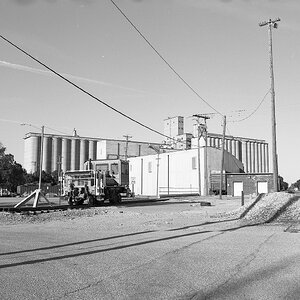Josh66
Been spending a lot of time on here!
- Joined
- Oct 31, 2007
- Messages
- 14,593
- Reaction score
- 1,239
- Location
- Cedar Hill, Texas
- Can others edit my Photos
- Photos NOT OK to edit
Looking at these reels, there are the 'regular' ones, the 'delux' ones, and the 'professional' ones. Other than price, what is the difference?
The professional one looks a little heavier (thicker wire), but the regular and delux ones look the same to me.
I'm assuming that it doesn't really matter, and the regular one for $10 is just as good as the professional one for $50. I thought I better ask though...
I can't see how the professional one could be "5 times better".
Is there any real reason why you would need the professional one over the regular one?
The professional one looks a little heavier (thicker wire), but the regular and delux ones look the same to me.
I'm assuming that it doesn't really matter, and the regular one for $10 is just as good as the professional one for $50. I thought I better ask though...
I can't see how the professional one could be "5 times better".
Is there any real reason why you would need the professional one over the regular one?



![[No title]](/data/xfmg/thumbnail/30/30859-ec099dbef074432d32832fceb25cf539.jpg?1619734479)

![[No title]](/data/xfmg/thumbnail/38/38263-ad5e4c9e677626ddb5b1e7cdf9ebe40e.jpg?1619738548)

![[No title]](/data/xfmg/thumbnail/33/33026-d1cc9c60c2164adb92d7186eedb0673d.jpg?1619735840)

![[No title]](/data/xfmg/thumbnail/30/30858-42113a4c092a5983afa30e5c35cce4d0.jpg?1619734478)


![[No title]](/data/xfmg/thumbnail/30/30860-944669dcf33f1f20df14586c78ed2608.jpg?1619734480)
